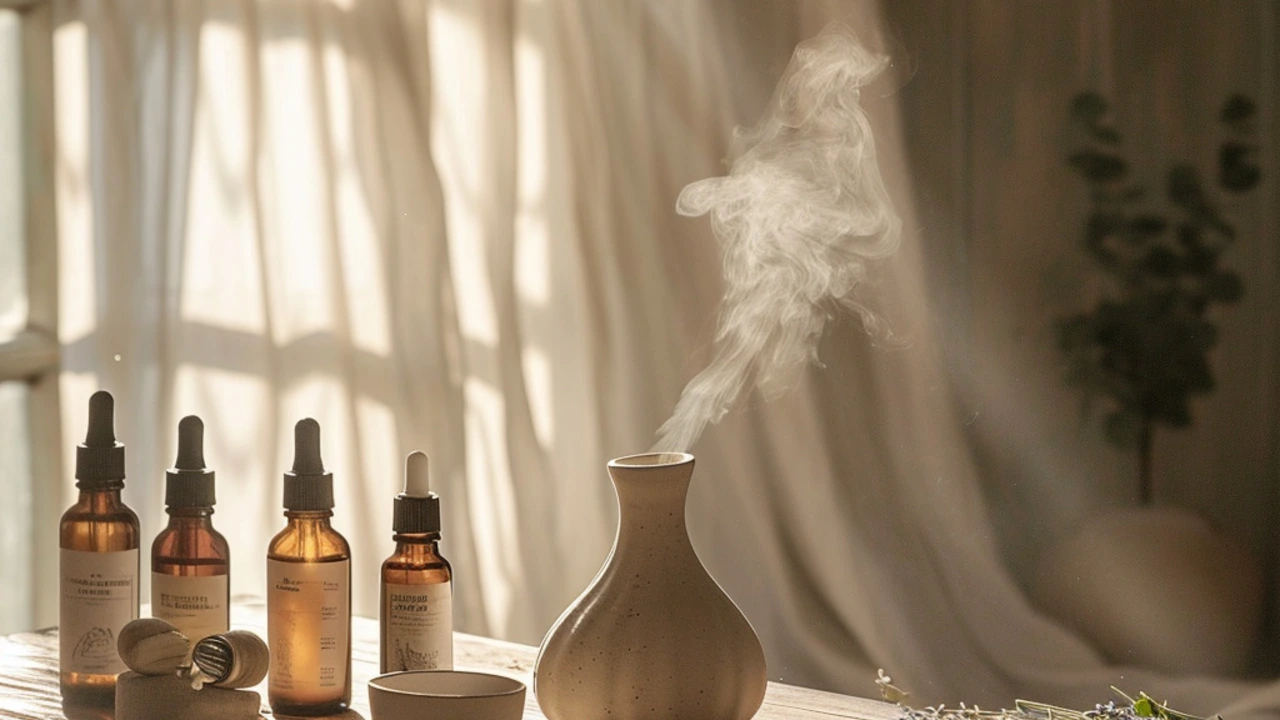Aromatherapy Practices: Simple Ways to Use Essential Oils for Health
Want quick relief from stress, trouble sleeping, or stuffy air? Aromatherapy can help without fuss. It uses concentrated plant oils to change mood, ease breathing, or boost focus. You don’t need weird tools—just a few basic supplies and simple habits to get started.
Start small. Try a diffuser for home or a roller for your bag. Diffusers spread scent evenly and work well in bedrooms and living rooms. Roll-ons let you apply diluted oil to wrists, behind ears, or the inside of the elbow for fast calm. For congestion, a steam inhale with a drop of eucalyptus in hot water can clear airways quickly.
Pick the right oils for the job. Lavender and chamomile help sleep. Peppermint wakes you up and eases headaches. Eucalyptus and tea tree support breathing. Citrus oils like orange or lemon lift mood and focus. Keep one oil for sleep and one for energy so you don’t mix effects.
Safe Use Tips
Always dilute essential oils before putting them on skin—10–20 drops per ounce of carrier oil for adults is a safe start. Do a patch test: apply a tiny diluted drop to your inner forearm and wait 24 hours. Never give undiluted oils to kids, and avoid certain oils for babies and pregnant people (check trusted lists). Don’t ingest oils unless a qualified professional recommends and supervises it.
Be mindful of pets: some oils like tea tree and eucalyptus can harm cats and dogs. Store oils in dark glass bottles away from heat and sunlight to keep them fresh. If irritation, headache, or breathing trouble starts, stop using the oil and open a window. Seek medical help if symptoms persist.
Practical Routines You Can Try
Morning boost: add 3 drops of lemon and 2 drops of peppermint to a diffuser for 20 minutes while getting ready. Travel calm: mix a roller with 10 ml carrier oil, 5 drops lavender, 3 drops frankincense—apply to wrists during trips. Bedtime wind-down: diffuse 4 drops lavender and 2 drops chamomile 30 minutes before sleep.
Choose quality over marketing. Look for the Latin name on labels (Lavandula angustifolia for lavender) and a batch or COA link so you know what’s inside. Cold-pressed citrus and steam-distilled herbs are normal methods. If a brand won’t share basic sourcing or testing info, pick another. Expect subtle effects — aromatherapy helps mood and comfort, not cure serious disease. Combine oils with other habits: massage with a carrier oil after workouts, diffuse while doing breathing exercises, or pair calming blends with a short bedtime routine. At work, use personal inhalers or small diffusers briefly and check coworkers before filling a shared space.
Want more guidance? Read articles on using aromatherapy for breathing issues, travel, and creating safe home rituals at Karma Health Hub. With simple tools, clear safety rules, and a couple of blends you like, aromatherapy becomes an easy part of daily wellness.
Start with one oil. Build a routine that fits you daily.

Essential Guide to Aromatherapy Benefits and Practices
Hey there, lovely readers! Have you ever been curious about aromatherapy and its wonders? I'm thrilled to dive deep into the heart of aromatherapy with you all. It's not just about pleasant scents; it's a holistic healing journey that can enhance your mind, body, and spirit. I'll be sharing insightful tips on how to incorporate essential oils into your daily routine, uncover their therapeutic properties, and explore the best practices for maximum benefits. So, let's embark on this aromatic adventure together and discover how these little bottles of magic can make a big difference in our lives!
Read More